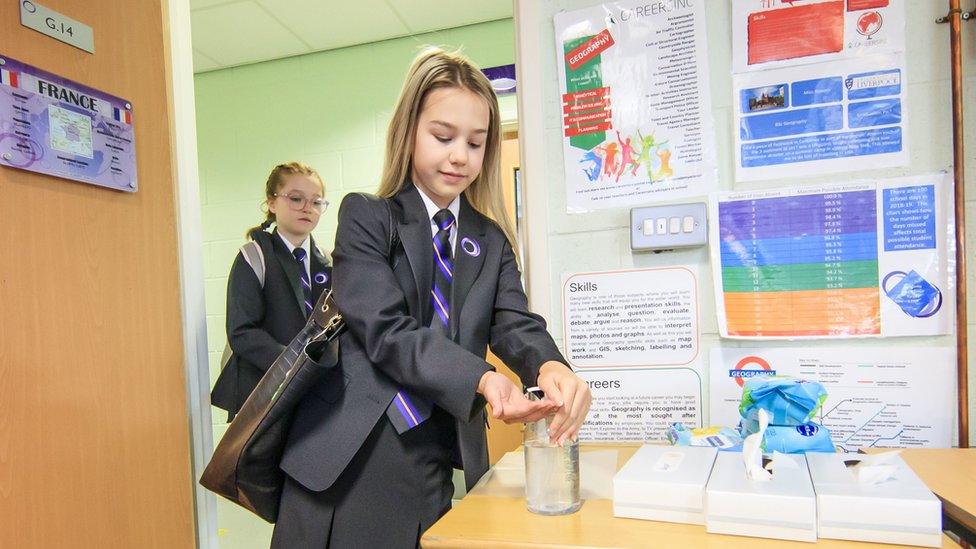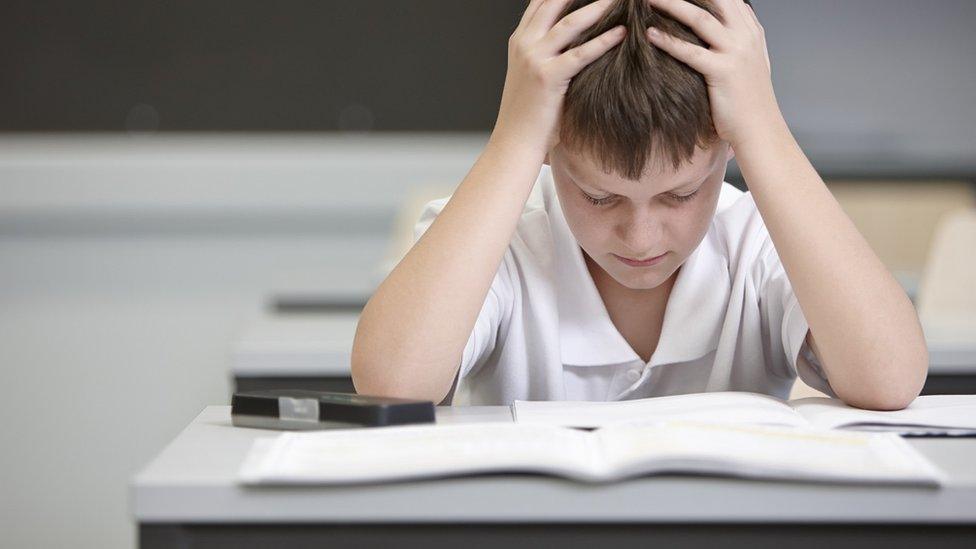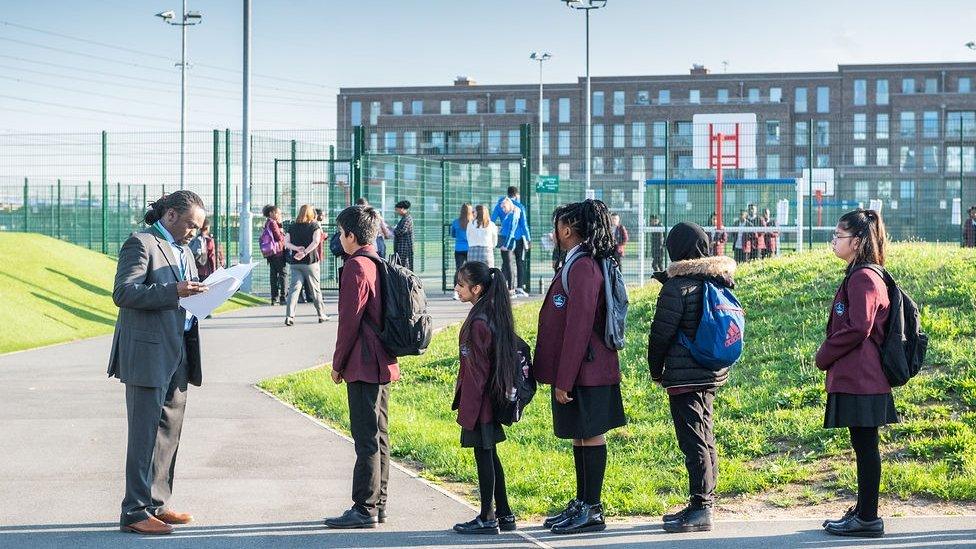Ofsted points to total school disruption in some areas
- Published
- comments

Education has been "completely disrupted" by the sheer scale of Covid absences in some schools in some areas, Ofsted regional bosses have warned.
The regional directors for North-West England and the West Midlands say the impact of rules around self-isolation has significantly impacted attendance.
They highlight areas where hundreds of pupils are absent and self-isolating at a time, some again and again.
Ofsted says some areas will have seen relatively little impact this term.
The latest official figures for overall attendance in England show 22% of pupils in secondary schools were absent last Thursday.
This was the same as the previous week, when figures also showed at least some pupils being sent home in 75% of schools.
The comments from these regional directors working with schools in hard-hit areas, come days before England's ministers are due to set out plans for public exams in the summer of 2021.
'Declining attendance'
James McNeillie, who oversees West Midlands for Ofsted, meets regularly with groups of head teachers.
He said: "I had one head teacher with schools in Dudley and Sandwell. Across three schools, there were 1,000 pupils self-isolating and 14 members of staff self-isolating.
"And he told me he had dealt with four Covid cases by 10 in the morning.
"That's the kind of messages we are getting about the impact on pupils and teachers."
Andrew Cook, who overseas North-West England which has had some of the highest Covid rates in the country, said there were significant concerns about attendance in areas around Liverpool. Oldham and Greater Manchester.
"There are schools where 40% of staff are off - either self-isolating or having tested positive. The huge impact of self-isolation has a significant impact on attendance.
"Schools are struggling because the number of staff they have had to send home - that impacts their ability to keep schools open.
"Attendance was fairly stable at the beginning of term but its started to decline," he said.

Mr Cook added that there was one local authority where the whole of Year 11 (GCSE year) had only been in school for two weeks before half term because they were repeatedly having to isolate as a bubble.
It would be extremely difficult to keep lessons flowing in such a situation, he said.
Parental confidence
He added that those pupils who were persistently absent - often those who were most vulnerable before the pandemic - were starting to stay away again.
And that parental confidence in school safety was often being shaken when cases or suspected cases emerged.
He added: "The impact on education is going to be significant. There will be some schools that have been hit hardest and with repeated episodes and that is going to completely disrupt their learning."
But he said schools had worked incredibly hard to provide learning online.
Looking forward to the way public exams are to be held this year, both directors said it had to be fair.
Mr McNeillie said: "Whatever it is that's decided by central government and Ofqual [the exams watchdog] - it has to be something that is fair for all."
Mr Cook agreed, adding that schools and head teachers were very focussed on exam groups and were trying to support them as much as possible.
Both directors paid tribute to teaching staff and heads, saying they had been doing an amazing job.

Analysis By Branwen Jeffreys
BBC Education Editor
The national picture on school attendance hides big variations.
Data which I've seen exclusively suggests that even across the north of England some areas are recovering better than other.
So the proportion of schools with cases is lower in Blackpool at below 30%, than Oldham or Rochdale where it remained above 40% last week.
Other places have suddenly been hit by the impact of the virus, with 16 schools in Kent reported closed recently. All of this makes it much harder to find a way of recognising lost learning for those facing exams.

Geoff Barton, head of the Association of School and College Leaders, said: "The health secretary yesterday said the national lockdown had helped to bring coronavirus back under control.
"It will not feel like that in many schools which continue to operate under very difficult circumstances because of the impact of the pandemic.
"We are particularly concerned about the final week of term when any positive cases will result in many children and staff having to self-isolate over Christmas in line with Covid protocols.
"We are pressing the government to allow schools to move to partial or full remote learning during that week if they feel this would help address the situation."
But a Department for Education spokesperson said it was a national priority to keep education settings open full-time.
This was supported by the Chief Medical Officer, Chris Whitty, who has highlighted the damage caused by not being in education to children's learning, development and mental health, he said.
"Schools, colleges and early years settings across the country have worked extremely hard to remain open, implementing safety measures and scaling up remote education provision for those children who are self-isolating, with approximately 99% of schools open each week since the start of term."
However, National Association of Head Teachers general secretary Paul Whiteman said pupils and teacher attendance figures was fluctuating massively and head teachers were doing their best to help pupils catch up whilst keeping their schools running.
But he said they were "operating largely in the dark" because the government was dragging its heals on crucial announcements.
- Published24 November 2020
